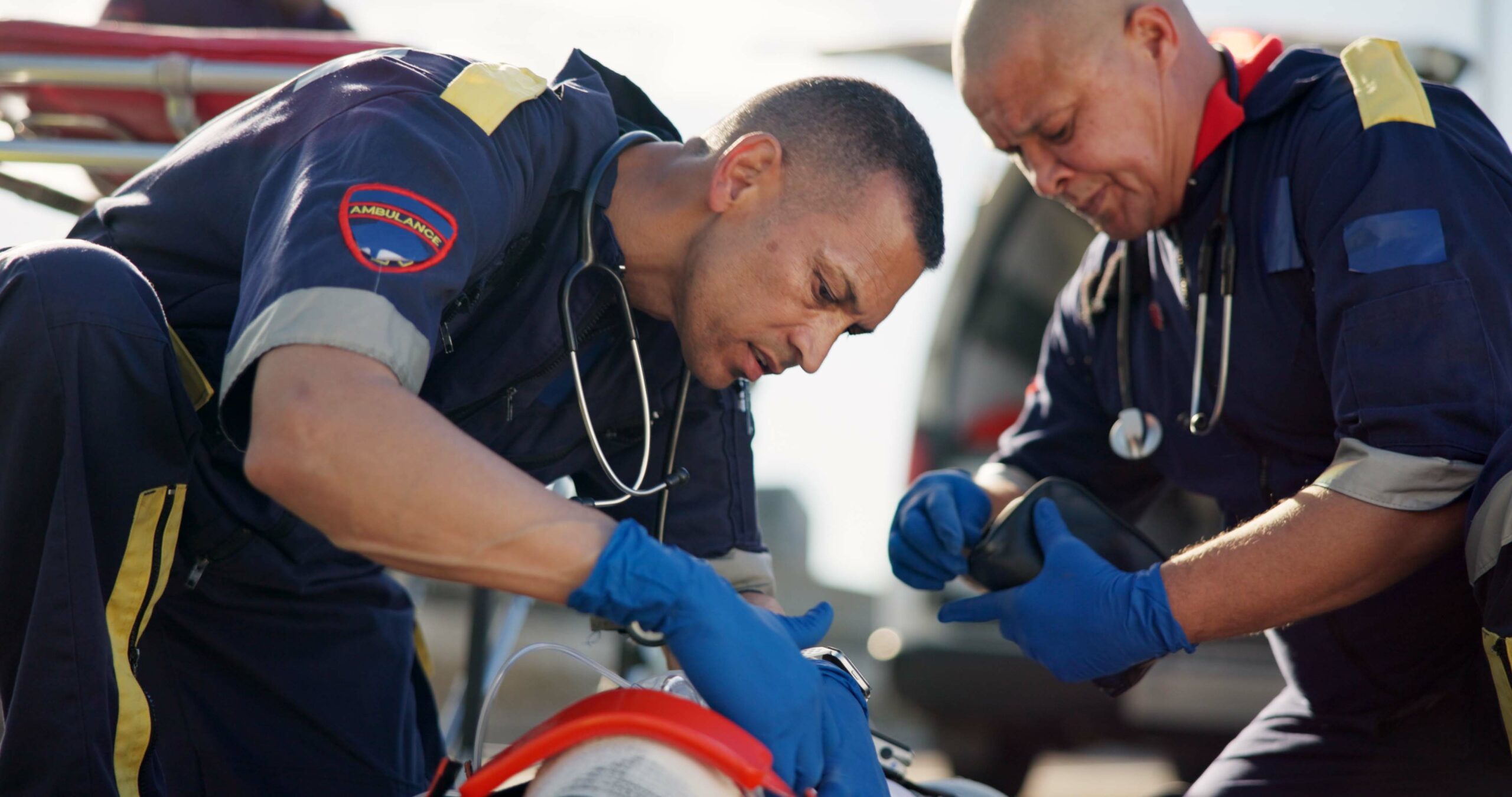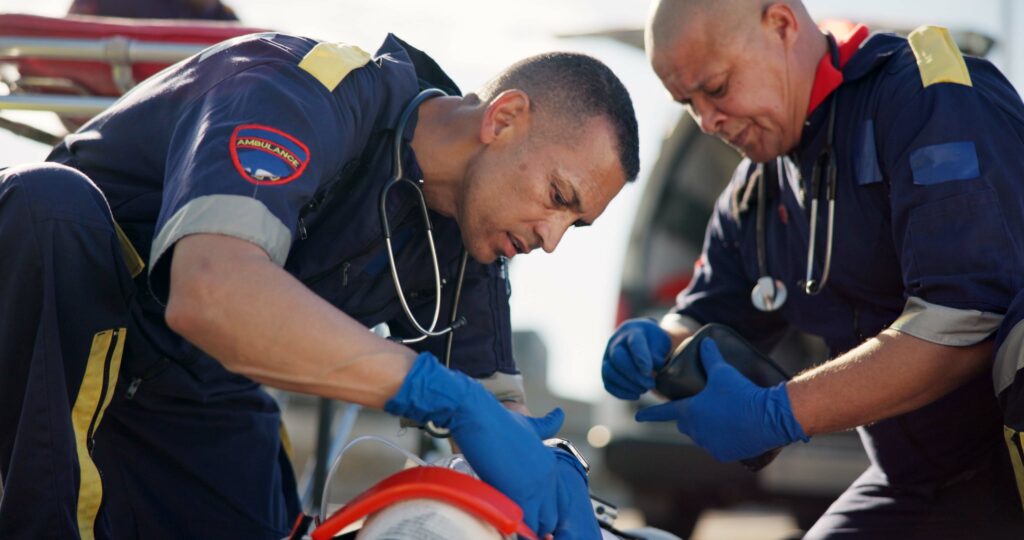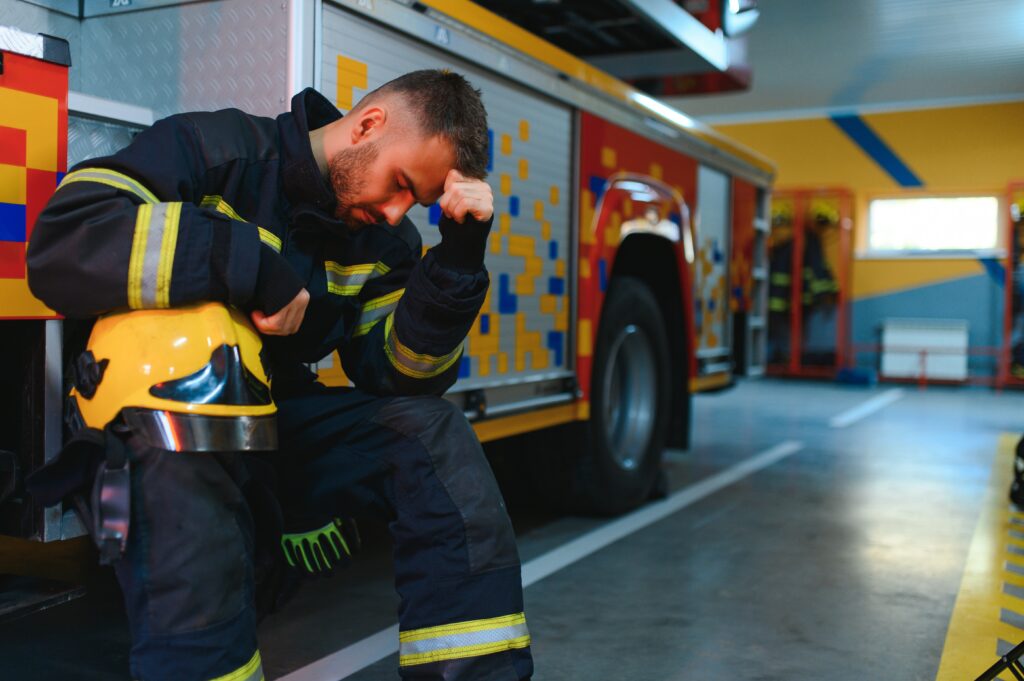Recognizing the Warning Signs: Suicide Prevention for First Responders
3/6/2025 by Markie Bryant

First responders, like police officers, firefighters, and paramedics, face intense and unique challenges every day. Their jobs are stressful and often involve witnessing traumatic events. Because of this, they are at a higher risk for mental health issues, including thoughts of suicide. It’s crucial to recognize the warning signs and know how to help those in crisis. This article aims to provide essential information on suicide prevention for first responders.
Key Takeaways
- First responders face unique stressors that increase their risk for mental health issues, including suicide.
- Recognizing behavioral changes and verbal indicators can help identify colleagues in crisis.
- Self-care strategies are vital for maintaining mental health and well-being among first responders.
- Supporting a colleague in crisis involves approaching the conversation carefully and connecting them to professional resources.
- Organizations play a crucial role in suicide prevention by creating supportive environments and providing ongoing training.
Understanding the Unique Stressors Faced by First Responders
First responders face unique challenges that can significantly impact their mental health and well-being. These stressors are often intense and persistent, making it crucial to understand their nature and effects.
High-Stress Environments and Trauma Exposure
First responders frequently work in high-stress environments where they are exposed to traumatic events. This constant exposure can lead to posttraumatic stress disorder (PTSD) symptoms, which affect between 7-37% of first responders. The nature of their job means they often witness or deal with life-threatening situations, accidents, and violence, which can take a heavy toll on their mental health.
Impact on Mental Health and Well-being
The continuous exposure to trauma and high-stress situations can lead to various mental health issues, including anxiety, depression, and PTSD. These mental health challenges can affect their overall well-being, making it difficult for them to perform their duties effectively. It’s important to recognize that the mental health of first responders is just as critical as their physical health.
Challenges in Seeking Help
Despite the significant impact on their mental health, first responders often face challenges in seeking help. There is a stigma associated with mental health issues, and many first responders may feel that admitting to these problems could be seen as a sign of weakness. Additionally, the demanding nature of their job can make it difficult to find the time to seek professional help. Overcoming these barriers is essential for ensuring that first responders receive the support they need.
Recognizing the Warning Signs of Suicide Among First Responders

Behavioral Changes to Watch For
First responders often face high-stress environments and witness tragedy every day. Over time, this emotional toll can lead to behavioral health conditions such as anxiety, depression, and post-traumatic stress disorder (PTSD). Watch for these behavioral changes:
- Withdrawal from friends, family, or social activities
- Neglect of work, appearance, or hygiene
- Increased use of alcohol or drugs
- Drastic changes in behavior or mood
Verbal and Non-Verbal Indicators
It’s important to pay attention to both what is said and what is not said. Verbal indicators might include:
- Talking about death, wanting to die, or killing themselves
- Expressing feelings of hopelessness or having no reason to live
- Mentioning feeling trapped or being a burden to others
Non-verbal indicators can be just as telling:
- Giving away prized possessions
- Making a will or discussing funeral preferences
- Showing interest in end-of-life affairs
Risk Factors Specific to First Responders
First responders have unique risk factors that can increase their vulnerability to suicidal thoughts or behaviors. These include:
- High exposure to trauma and suicidal behaviors through their work
- Chronic stress and burnout
- Lack of sleep and physical exhaustion
- Challenges in seeking help due to stigma or fear of job repercussions
Recognizing these warning signs early can make a significant difference in preventing a tragedy. Always take any signs seriously and encourage seeking professional help.
Effective Self-Care Strategies for First Responders

First responders face unique challenges that can take a toll on their mental and physical health. Implementing effective self-care strategies is crucial for maintaining overall well-being and resilience in this high-stress profession.
Importance of Physical Health
Maintaining physical health is a cornerstone of self-care for first responders. Regular exercise, a balanced diet, and adequate sleep are essential. Physical fitness not only improves overall health but also helps in managing stress and trauma. Here are some tips:
- Engage in regular physical activity, such as running, swimming, or strength training.
- Eat a balanced diet rich in fruits, vegetables, and lean proteins.
- Ensure you get 7-9 hours of sleep each night.
Mental Health Maintenance Techniques
Mental health is just as important as physical health. First responders should adopt techniques to manage stress and maintain mental well-being. Some effective strategies include:
- Practice mindfulness and meditation to stay grounded.
- Engage in hobbies and activities that bring joy and relaxation.
- Seek professional help when needed, and don’t hesitate to talk to a mental health professional.
Building a Support Network
Having a strong support network is vital for first responders. This network can include family, friends, and colleagues who understand the unique stressors of the job. Peer support is particularly important as colleagues can offer empathy and understanding that others may not be able to provide. Consider the following:
- Join support groups or peer support programs specifically designed for first responders.
- Maintain open communication with loved ones about your experiences and feelings.
- Encourage a culture of support and openness within your workplace.
Taking care of yourself is not a sign of weakness; it’s a necessary step to ensure you can continue to help others effectively.
How to Support a Colleague in Crisis

Approaching the Conversation
When you notice a colleague showing signs of distress, it’s important to act quickly. Find a quiet, private place to talk. Start the conversation by expressing your concern. You might say, “I’ve noticed you’ve seemed really down lately. Is everything okay?” Listen actively and show empathy. Avoid judgment and let them share their feelings.
Providing Immediate Assistance
If your colleague mentions thoughts of self-harm, prioritize their safety. Call 911 if necessary. You can say, “Given what you’ve told me, I have concerns about your safety. Your safety is the most important thing right now.” Follow your company’s policy on contacting emergency contacts. Stay with them until help arrives.
Connecting to Professional Resources
Encourage your colleague to seek professional help. Offer to help them find resources like counselors or hotlines. You can say, “I understand if it feels awkward to see a counselor, but there are people who can help.” Provide them with contact information for crisis lines or mental health professionals. If the situation is critical, take them to an emergency room or call 911.
Training and Resources for Suicide Prevention
Available Programs and Workshops
There are several excellent trainings available to help first responders recognize and respond to suicide risks. Some of the key programs include:
- Mental Health First Aid: This 8-hour course covers mental illness and substance use disorders, teaching participants to identify risk factors and warning signs.
- Applied Suicide Intervention Skills Training (ASIST): A two-day workshop designed to help caregivers feel more confident in preventing suicide.
- safeTALK: A 3-hour training that prepares individuals to identify and connect people with thoughts of suicide to resources.
- QPR (Question, Persuade, Refer): A one-hour training that teaches how to recognize the warning signs of a suicide crisis and how to help.
Utilizing Peer Support Systems
Peer support systems are crucial for first responders. These systems provide a network of colleagues who understand the unique stressors of the job. Recognizing physical signs of mental health issues early can lead to timely intervention and support.
Accessing Mental Health Resources
First responders should have easy access to mental health resources. This includes confidential counseling services, crisis hotlines, and online support groups. Encouraging open communication about mental health can reduce stigma and promote a culture of support.
It’s essential for first responders to be equipped with the right tools and knowledge to support their mental health and the well-being of their colleagues. Training and resources play a vital role in this effort.
The Role of Organizations in Suicide Prevention

Organizations play a crucial role in preventing suicide among first responders. By creating a supportive work environment, implementing mental health policies, and providing ongoing training and education, organizations can make a significant impact.
Creating a Supportive Work Environment
A supportive work environment is essential for the well-being of first responders. Non-profit initiatives, government programs, and community-based support can help reduce stigma and provide necessary resources. Encouraging open conversations about mental health and ensuring that employees feel safe to seek help are key steps.
Implementing Mental Health Policies
Organizations should have clear mental health policies in place. These policies should include guidelines for commanders on how and when to use mental health services, as well as unit-based preventive services. Such policies can increase access to mental health care and promote early help-seeking behavior.
Providing Ongoing Training and Education
Continuous training and education are vital. Training programs should cover recognizing and responding to warning signs, understanding risk factors, and knowing how to provide immediate assistance. Training goals should include increasing knowledge, skills, and self-efficacy in helping others, as well as demonstrating increased intent to act to intervene with those at risk.
Organizations must foster a culture of mental health awareness to ensure the well-being of first responders.
Personal Stories and Testimonials
Experiences from First Responders
Many first responders have shared their struggles and triumphs in dealing with mental health challenges. For instance, Senior Master Sgt. Michael Tesoriero described feeling utterly alone and withdrawing from everyone. He believed that nobody wanted him around and that he was just in the way. These feelings of isolation and worthlessness are common among first responders facing mental health issues.
Impact of Support Systems
Support systems play a crucial role in the recovery and well-being of first responders. Connecting with others can significantly improve resilience. New and seasoned members of the military community often find it tough to stay connected to friends and family, but those who do report better mental health outcomes. Random acts of kindness, like digging out a car buried in snow or paying for someone’s meal, can also positively influence someone’s day and mental state.
Lessons Learned and Advice
First responders who have navigated through their mental health struggles often emphasize the importance of seeking help and building a support network. They advise others to not ignore the symptoms of depression, such as persistent sadness and withdrawal. Overcoming the stigma surrounding mental health in this profession is essential for fostering recovery and well-being among these unsung heroes.
It’s vital to recognize the symptoms of depression and seek professional help. The stigma surrounding mental health in this profession needs to be addressed to foster recovery and well-being among these unsung heroes.
Conclusion
First responders face unique challenges that can put them at higher risk for suicidal thoughts and behaviors. Recognizing the warning signs and knowing how to seek help are crucial steps in preventing suicide. By staying informed and supporting each other, first responders can create a safer and more supportive environment. Remember, it’s okay to ask for help and to offer it to others. Together, we can make a difference and save lives.
Frequently Asked Questions
What are some common warning signs of suicide in first responders?
Common warning signs include talking about wanting to die, feeling hopeless or trapped, withdrawing from friends and family, and drastic changes in behavior or mood.
How can I approach a colleague who might be struggling with suicidal thoughts?
Start by expressing your concern in a non-judgmental way. Let them know you are there to support them and encourage them to seek professional help.
Why are first responders at higher risk for suicide?
First responders often face high-stress situations and traumatic events, which can take a toll on their mental health. The stigma around seeking help can also prevent them from getting the support they need.
What self-care strategies can first responders use to maintain their mental health?
First responders can benefit from regular physical exercise, maintaining a healthy diet, getting enough sleep, and building a strong support network of friends, family, and colleagues.
What should I do if I notice warning signs of suicide in a colleague?
Take the signs seriously and talk to your colleague about your concerns. Encourage them to seek help from a mental health professional and offer to assist them in finding resources.
Are there specific training programs for suicide prevention among first responders?
Yes, there are various programs and workshops available that focus on suicide prevention for first responders. These programs teach how to recognize warning signs and provide support to those in crisis.